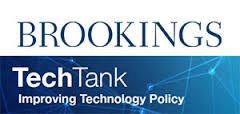Health Care Data as a Public Utility: How Do We Get There?
 Forty-six million Americans use mobile fitness and health apps. Over half of providers serving Medicare or Medicaid patients are using electronic health records (EHRs). Despite such advances and proliferation of health data and its collection, we are not yet on an inevitable path to unleashing the often-promised “power of data” because data remain proprietary and fragmented among insurers, providers, health record companies, government agencies, and researchers. Despite the technological integration seen in banking and other industries, health care data has remained scattered and inaccessible. EHRs remain fragmented among 861 distinct ambulatory vendors and 277 inpatient vendors as of 2013.
Forty-six million Americans use mobile fitness and health apps. Over half of providers serving Medicare or Medicaid patients are using electronic health records (EHRs). Despite such advances and proliferation of health data and its collection, we are not yet on an inevitable path to unleashing the often-promised “power of data” because data remain proprietary and fragmented among insurers, providers, health record companies, government agencies, and researchers. Despite the technological integration seen in banking and other industries, health care data has remained scattered and inaccessible. EHRs remain fragmented among 861 distinct ambulatory vendors and 277 inpatient vendors as of 2013.
Similarly, insurance claims are stored in the databases of insurers, and information about public health—including information about the social determinants of health, such as housing, food security, safety, and education—is often kept in databases belonging to various governmental agencies. These silos wouldn’t necessarily be a problem, except for the lack of interoperability that has long plagued the health care industry. For this reason, many are reconsidering if health care data is a public good, provided to all members of the public without profit. Indeed, publicly available health care data holds the potential to unlock many innovations, much like what public goods have done in other industries. As publicly available weather data has shown, the public utility of open access information is not only good for consumers, it is good for businesses
Now more than ever, consumers expect care providers to work together and leverage all of the tools available to them—and providers are in agreement. A 2013 report found that 60 percent of Americans wanted to communicate electronically with their providers, 81% of providers see mobile access as supporting care coordination, and 58 percent would rather provide some patient care remotely. Yet, concerns remain with patient privacy and the quality of the data. There is further concern that opening access to data would undermine the incentives to collect quality data because “research parasites” would benefit without any investment. To address these concerns, stakeholders should consider how to best promote an open-data environment, since data will surely play a significant role in improving health care...
- Tags:
- 21st Century Cures Act
- care coordination
- Centers for Medicare & Medicaid Services (CMS)
- electronic health records (EHRs)
- Electronic Medical Record (EMR)
- health care data as a public utility
- health data collection
- health data sharing
- Health Information Technology for Economic and Clinical Health Act (HITECH)
- Health Insurance Portability and Accountability Act (HIPAA)
- Institute of Medicine
- interoperability
- Margaret Darling
- Medicare providers
- Medicare's hospital Compare rankings
- Medicare’s physician Compare rankings
- mobile access
- mobile fitness apps
- mobile health apps
- Mohit Kaushal
- Office of the National Coordinator for Health IT (ONC)
- open access information
- Open Data
- power of data
- privacy standards
- public utility
- publicly available health care data
- Roundtable on Value and Science-Driven Healthcare
- safety
- security
- security standards
- Login to post comments